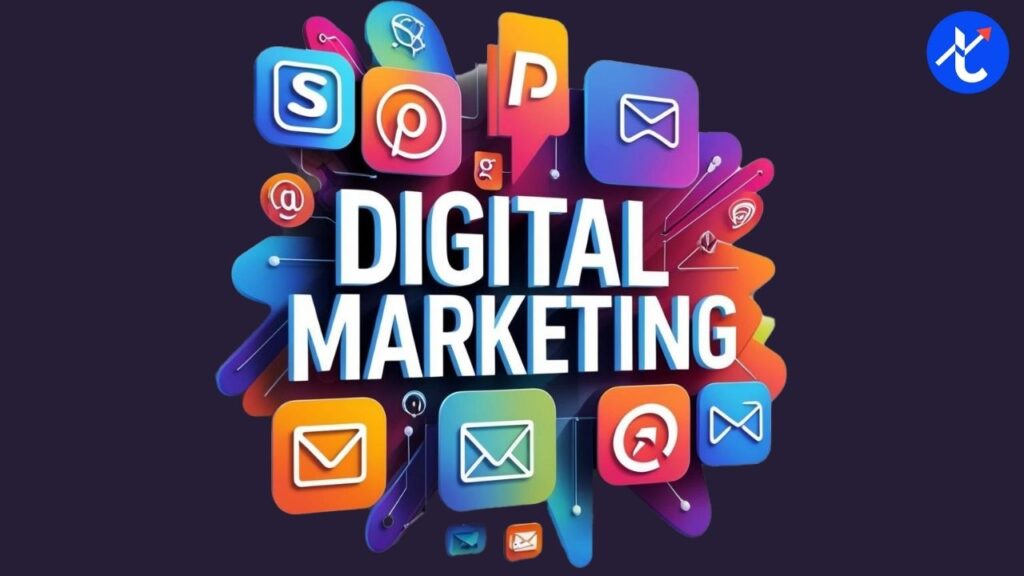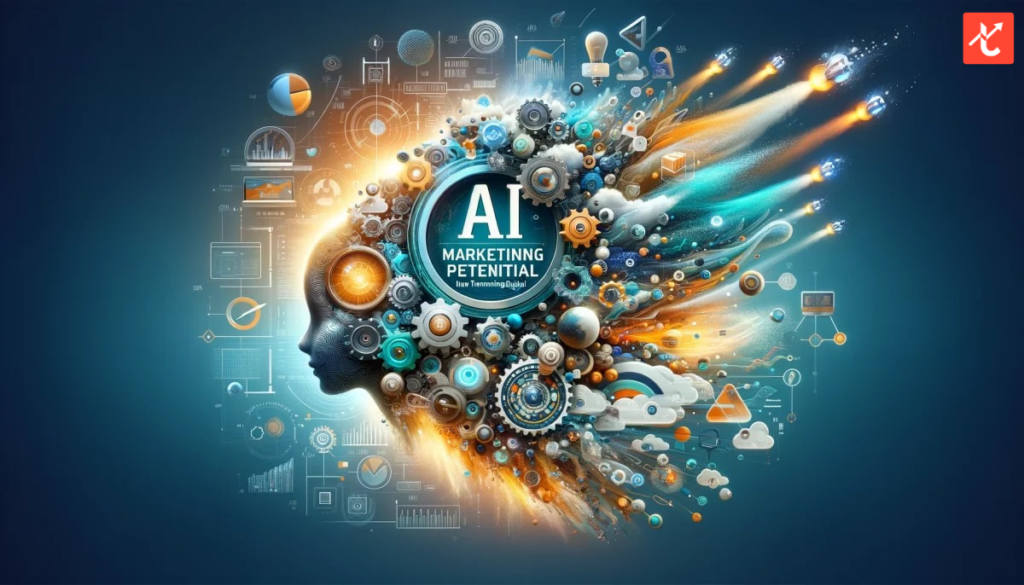AI is transforming the way businesses market their products and services. But there are many AI marketing myths floating around that can slow growth and drain budgets. These myths often make marketers doubt AI or use it incorrectly. In this guide, we will explore these myths and also share AI marketing solutions and AI marketing best practices that help companies improve their marketing results. By the end, you will understand how to improve marketing ROI with AI effectively.
Understanding AI Marketing Myths
Artificial Intelligence (AI) has become one of the most powerful tools in modern marketing. From automating tasks to predicting customer behavior, AI is changing the way businesses connect with their audience. But despite its potential, there are many AI marketing myths that hold companies back from fully benefiting from it.
These myths are basically wrong ideas or misunderstandings that create fear or doubt around using AI in marketing. Often, these myths spread because people haven’t explored AI deeply or have had limited experience with it. In the world of integrated digital marketing, relying on incorrect assumptions can be costly. The result? Businesses either avoid using AI or use it in the wrong way — which can waste time, resources, and budgets.
Here are some reasons why understanding these myths is important:
- Prevents Misuse of AI Tools
Many marketing teams adopt AI tools without fully understanding how they work. This can lead to over-reliance on automation or ignoring important strategic steps. Recognizing myths helps marketers use AI more effectively. - Improves Decision-Making
Believing myths can make decision-makers hesitant or overly cautious. By understanding the truth about AI, companies can make informed choices that truly enhance marketing campaigns. - Saves Time and Money
Some myths suggest AI is either too costly or too complicated. This may stop businesses from exploring affordable and easy-to-use AI marketing solutions. Busting these myths opens opportunities for smarter spending and faster results. - Encourages Innovation
Myths can create a fear of change. When marketers understand AI better, they are more open to experimenting with new AI-driven strategies, leading to innovation in campaigns and processes. - Helps Improve Marketing ROI with AI
The ultimate goal for any business is a higher return on investment. By breaking down AI marketing myths, businesses can adopt the right tools and practices to boost ROI and achieve measurable results.
Myth 1: AI Can Replace Human Creativity
A common AI marketing myth is that AI can fully replace human creativity. While AI tools can generate ideas, create drafts, and suggest headlines, they lack human emotion, storytelling, and intuition. AI works best as a creative assistant, not a full replacement.
Why this myth exists: Overhyped claims and excitement about automation make businesses believe AI can handle all creative tasks.
AI marketing solution: Use AI for idea generation, data analysis, and repetitive tasks, and let humans refine and personalize the final content.
AI marketing best practice: Blend AI insights with human creativity to produce campaigns that are both data-driven and emotionally engaging.
Example: AI can suggest trending keywords for a campaign, but human marketers decide the tone, story, and emotional connection.
By combining AI and human creativity, you can bust this myth and truly improve marketing ROI with AI.
Myth 2: AI Marketing Is Too Expensive
One of the biggest AI marketing myths is the belief that AI tools are too costly for most businesses. Many companies hesitate to adopt AI because they think it will require huge investments. While some advanced AI systems can be expensive, there are plenty of affordable solutions that deliver value and actually save money in the long run.
Why this myth exists: Early AI tools were costly, and marketing around AI often made it seem like a tool only for big companies. This has made smaller businesses reluctant to try AI.
The truth: AI marketing solutions today range from free tools to scalable paid platforms. Many tools offer flexible pricing based on business needs, making them accessible for businesses of all sizes.
AI Marketing Solutions
- Start small: Use AI tools with free or low-cost plans to test their value.
- Choose scalable tools: Pick platforms that grow with your needs.
- Measure ROI: Track the benefits AI brings before expanding investment.
AI Marketing Best Practices
- Compare different AI tools for features and cost.
- Start with AI tools for simple tasks like content generation or social media scheduling.
- Evaluate the time saved and increased efficiency to measure true value.
Example: A small e-commerce business used a low-cost AI tool to automate social media posts. This saved over 10 hours a week, allowing them to focus on strategy. Their ROI improved significantly without huge expenses.
Myth 3: AI Guarantees Instant Success
Many believe that simply using AI will instantly boost marketing results. This is a common AI marketing myth. While AI speeds up work and offers insights, real success comes from careful planning, testing, and strategy.
Why this myth exists: Overhyped claims and misunderstanding AI’s role create unrealistic expectations.
AI marketing solution: Begin with small campaigns, track progress, and adjust strategies.
AI marketing best practice: Blend AI’s power with human creativity for consistent results.
Example: A brand using AI for content optimization saw steady improvement over months, ultimately boosting engagement by 35%.
The truth is clear — with the right AI marketing solutions, you can steadily improve marketing ROI with AI.
Myth 4: AI Is Only for Big Companies
A common belief is that AI is only useful for big brands. This is one of the biggest AI marketing myths. Small and medium businesses can also use AI to compete effectively.
AI marketing solution: Look for AI marketing tools designed for small businesses. Many affordable solutions exist.
AI marketing best practice: Start with AI tools for social media, content creation, and analytics.
Myth 5: AI Marketing Doesn’t Need Strategy
Some think AI will automatically produce the best strategy. This is a dangerous AI marketing myth. Without strategy, AI results will be limited and inconsistent.
AI marketing solution: Combine AI insights with a clear marketing plan.
AI marketing best practice: Use AI to enhance strategy, not replace it.
AI Marketing Solutions to Overcome These Myths
Now that we’ve busted some major AI marketing myths, let’s look at solutions:
- Smart AI tools: Use tools that align with your goals.
- Automation with strategy: Automate repetitive tasks but keep strategic planning human-driven.
- Data-driven decisions: Let AI help with analysis, but decisions should involve human insight.
- Training & learning: Keep your marketing team trained in AI tools and trends.
These AI marketing solutions will help businesses grow faster while avoiding costly mistakes.
AI Marketing Best Practices for Better Results
Here are proven AI marketing best practices:
- Start with a clear goal: Know what you want to achieve.
- Test before scaling: Experiment with AI tools on small campaigns first.
- Combine AI and human creativity: Use AI for efficiency and humans for creativity.
- Monitor results: Always track AI performance.
- Stay updated: AI is evolving fast — stay ahead of trends.
How to Improve Marketing ROI with AI
Using AI correctly can dramatically boost your ROI. Here’s how to improve marketing ROI with AI:
- Use AI for audience segmentation to target better.
- Automate repetitive tasks to save time and money.
- Analyze customer data to improve personalization.
- Test campaigns faster and more efficiently.
- Optimize ad spending using AI analytics.
By following these steps, businesses can overcome AI marketing myths and get maximum results.
Conclusion
AI has the potential to revolutionize marketing, but falling for AI marketing myths can slow down progress and waste resources. Believing that AI can replace human creativity, deliver instant success, or is only for big companies can hold businesses back from adopting the right AI marketing solutions. By understanding these myths, marketers can make informed decisions, avoid costly mistakes, and focus on strategies that truly work.
Applying AI marketing best practices — like combining AI with human creativity, testing campaigns carefully, and setting clear goals — allows businesses to harness AI effectively. When used correctly, AI not only streamlines processes but also helps companies improve marketing ROI with AI, reach the right audience, and achieve measurable growth. Busting these myths is the first step toward smarter, more successful AI-driven marketing.
FAQs
1. What are common AI marketing myths?
Common AI marketing myths include believing AI can replace human creativity, guarantee instant success, be too expensive, or is only useful for big companies. These myths can prevent businesses from using AI effectively.
2. What are effective AI marketing solutions?
Effective AI marketing solutions include combining AI tools with human creativity, starting with small campaigns, testing results, and using AI for audience segmentation, automation, and analytics.
3. What are some AI marketing best practices?
AI marketing best practices include: setting clear goals, blending AI with human creativity, testing campaigns before scaling, monitoring performance, and staying updated with AI tools and trends.
4. Can AI completely replace human marketers?
No. AI is best used to assist marketers by handling data analysis and repetitive tasks, while human creativity, strategy, and emotional intelligence remain essential for effective marketing.





